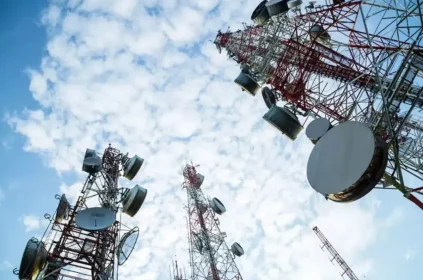Do you know that the moves to shut down Third Generation (3G) network will make some of your home appliances to stop working?
Even some systems in your car as well as medical devices will also stop functioning! How?
You must have been hearing about the ushering in of 5g wireless technology.
Also, you must have seen many new devices, especially smartphones that support 5g.
For instance, the latest Apple devices, iPhone 13 series and the coming Samsung Galaxies support 5G network.
Likewise, due to the high speed and many other benefits that 5G promises, the fifth gen network has gained very wide acceptance.
However, as 5G is rolling in, we are getting to the end of 3G and its pretty fast.
Meanwhile, moves by global and local telecommunications companies to shutdown the third Generation (3G) network will make your cars, home alarm systems and some medical devices to stop working.
The background:
Wireless carriers of network are planning to use 3G airwaves to expand 5G service.
The major airwave carriers are telecommunications company AT&T, Verizon, and T-Mobile.
While AT&T has its 3G shutdown set for Feb. 22.
The trouble:
Less than 1% of mobile data traffic remains 3G, according to spokesman Jim Greer.
After AT&T, T-Mobile will decommission the 3G network it inherited from Sprint March 31 and unplug its own 3G July 1. Verizon users have until Dec. 31.
“That does not look like it’s going to emerge as a major issue.”
said Harold Feld, senior vice president at the Washington tech-policy nonprofit Public Knowledge.
“There’s been a huge push by carriers to get people to upgrade.”
“That does not look like it’s going to emerge as a major issue,” said Harold Feld.
Feld is a senior vice president at the Washington tech-policy nonprofit Public Knowledge.
“There’s been a huge push by carriers to get people to upgrade.”
He did warn that some rural areas might see coverage degrade, thanks to longer-range frequencies used for 3G going dark until they can be lit up with 5G.
But that still leaves a lot of non-phone hardware.
Some of that isn’t exactly mission-critical, like e-book readers or vehicle telematic systems, and a lack of urgency may lead to a lack of action.
“No one wants to bear the brunt of telling customers their devices are going to stop working, and no one wants to pay to upgrade their customers’ devices, especially when the issue is due to the actions of another party,” emailed Tammy Parker, principal analyst at GlobalData.
She said her old BMW has a 3G module – itself an upgrade from factory-installed 2G –for a road-assistance service she stopped using, and she has yet to get any notice about that.
But devices like home alarms and medical-alert bracelets do more vital work and are harder to upgrade than a flip phone.
“You really do need to get into the residence or the business to make the change,” notes John Brady, who wears two hats as the chief operating and finance officer at Connect America, a tele-health firm based in Bala Cynwyd, Pennsylvania.
So while that company has warned users over the last year (“Our customers have gotten about 20 notices,” says Brady), the pandemic impeded those service calls.
Then the chip shortage tripped up the entire industry, which he estimated leaves some 1.5 million intrusion and fire alarms and half a million wearable emergency-alert devices needing replacement.
“We’re deeply concerned that on Feb. 23, there are going to be a whole lot of people that are going to think their system is going to save their life,” he said.
“We have been proactively working with our business customers since February 2019 to help them through this transition,” AT&T’s Greer said in an e-mail sent Monday by a company publicist.
Tuesday, AT&T posted a notice saying that at the Federal Communications Commission’s urging, it’s now offering “roaming options.”
“It sounds great, but it’s really not a solution,” replies Brady, who also works on the Alarm Industry Communications Committee, an industry group.
He said many vulnerable devices aren’t on systems that let them roam automatically on non-AT&T 3G.
He and Feld further complained that AT&T wants separate roaming agreements signed by every company involved.
AT&T declined to comment further.
“We absolutely need an extension,” Brady says, pointing out that the industry now only seeks four to six months’ delay, but at a minimum, needs to know which 3G sites go offline first.
“You really don’t want to have an alarmageddon when AT&T shuts off their system,” Feld says, adding that he’d prefer this conclude like the year-2000 bug: “It would have been a problem if we’d ignored it, but because we dealt with it, it’s not a problem.”
Found this interesting? Share!

























 and then
and then